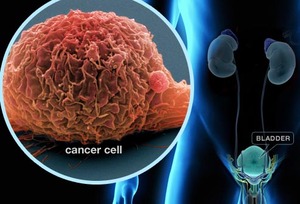How to Diagnose Bladder Cancer in Valencia: Latest Advances in Diagnosis

Bladder cancer diagnosis in Valencia is a complex process that includes several steps. First of all, the patient is assigned an examination, which includes a urinalysis, a blood test, and an ultrasound examination. If the assumption about the presence of bladder cancer is confirmed, the patient is assigned an additional study, including computed tomography, magnetic resonance imaging and radiography.
In Valencia, a biopsy is also used to diagnose bladder cancer. This method allows obtaining biological material for further research and confirmation of the diagnosis. Also, for the diagnosis of bladder cancer in Valencia, cytological analysis technology is used, which allows you to determine the degree of malignancy of the tumor.
Valencia also uses cytogenetic analysis to diagnose bladder cancer. This method allows you to determine the presence or absence of mutations in genes, which allows you to assess the risk of developing bladder cancer.
Bladder cancer is a common occurrence in modern urology. Bladder cancer is the fifth in the list of malignant neoplasms. Urothelial tumors constitute the main group of diseases and have several forms: malignant tumors of the bladder, either non-penetrating into the muscles of the bladder (TVNIM) and infiltrative (TVIM), tumors of the bladder and upper urinary tract. These tumors have a high potential for recurrence and progression to a more severe form, so close and long-term follow-up is essential!
GENERAL INFORMATION
The main features of bladder tumors are their recurrent nature and the risk of progression of the stage (infiltration) of tissues and degree (histological differentiation): 70% tumors that do not involve bladder musculature recur, while 10-20% tumors progress towards the invasive stage.
Bladder cancer mostly affects men, and tobacco is the main risk factor. The most common manifestation is the presence of blood in the urine, hematuria, and sometimes urinary disorders.
Radiotherapy and surgery for bladder cancer in Valencia
Bladder cancer is one of the most common types of cancer in the world. In Valencia, two main methods are offered for the treatment of this disease: radiotherapy and surgery.
Radiation therapy is a treatment that uses ionizing radiation to kill tumor cells. This method can be used to treat bladder cancer in Valencia. It can be used to treat not only admixture tumors, but also to prevent their occurrence.
Surgery is another treatment for bladder cancer in Valencia. This method involves removing the tumor through surgery. Depending on the extent of the disease, doctors may offer the patient one of the following surgeries: transurethral resection of the bladder, radical resection of the bladder, or radical cystectomy.
In conclusion, radiotherapy and surgery are the two main treatments for bladder cancer in Valencia. Doctors may suggest one of these treatments to the patient, depending on the extent of the disease. Both methods can be effective when used correctly.
New treatments for bladder cancer in Valencia: advantages and disadvantages
In recent years, new treatments for bladder cancer have emerged in Valencia. These methods include radical prostatectomy, radical cystectomy, radical cystourethrostomy, and minimally invasive therapies. All of these methods have their advantages and disadvantages.
One of the main advantages of radical treatments is that they allow you to completely remove the disease. This allows the patient to avoid the consequences of cancer, such as metastasis or recurrence of the disease. In addition, radical methods of treatment allow the patient to restore the functions of the bladder.
However, radical treatments also have their drawbacks. First, they can be expensive and labor intensive. Secondly, they can lead to consequences such as infections, bleeding, or effects of anesthesia. Thirdly, radical treatments can lead to loss of bladder function.
Minimally invasive treatments also have their advantages and disadvantages. They are less time-consuming, cheaper and less risky than radical methods. However, they may be less effective than radical methods and may not completely remove the disease.
In conclusion, radical and minimally invasive treatments for bladder cancer in Valencia have their advantages.
Latest advances in the treatment of bladder cancer in Valencia: surgical and medical methods
Significant progress has been made in the treatment of bladder cancer in Valencia. In the course of recent research, surgical and medical methods of treatment have been developed and are being applied.
Surgical treatments for bladder cancer include radical cystectomy, which involves the removal of the entire bladder and adjacent tissues. Minimally invasive surgery techniques such as robotic cystectomy and laparoscopic cystectomy are also used.
In addition, medical treatments for bladder cancer are used in Valencia. This includes the use of chemotherapy, immunotherapy, and biological therapy. All these methods help reduce the risk of cancer recurrence and improve the prognosis of patients.
Significant progress has been made in the treatment of bladder cancer in Valencia. Modern surgical and medical methods allow to achieve better treatment results and improve the prognosis of patients.
Latest research on the diagnosis and treatment of bladder cancer in Valencia: progress and perspectives
In recent years, significant progress has been made in Valencia in research into the diagnosis and treatment of bladder cancer. In order to prevent and treat this disease, studies have been conducted on the use of various diagnostic methods, including magnetic resonance imaging, ultrasound, computed tomography and cytology. Studies have also been conducted on the use of various treatments, including surgery, chemotherapy, radiotherapy, and immunotherapy.
Tell me, how is smoking related to bladder cancer?